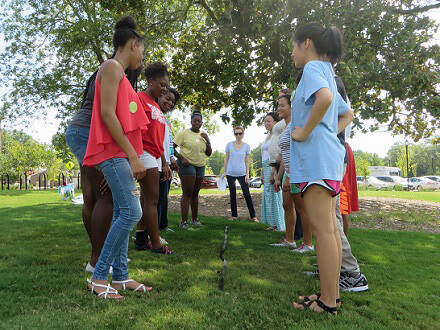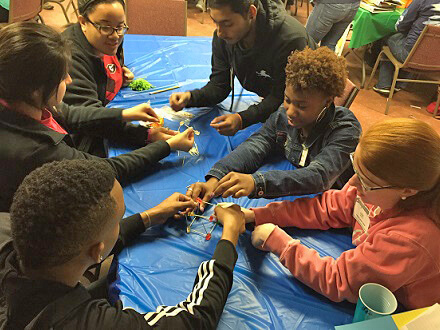Contributed By John Keenan
As you are gearing up for another year of working with youth and striving to help them grow, consider this: youth can accomplish anything they want with effort, patience and the right mindset.
 According to Carol Dweck, our mindsets are malleable, and you can support the development of a growth mindset in the youth you serve. In her book, Mindset: The New Psychology of Success, Dweck defines two distinct mindsets and how they contribute to our success and failure.
According to Carol Dweck, our mindsets are malleable, and you can support the development of a growth mindset in the youth you serve. In her book, Mindset: The New Psychology of Success, Dweck defines two distinct mindsets and how they contribute to our success and failure.
On one end of the spectrum is the fixed mindset, where individuals believe that their basic qualities are inherent; you are either good at something or you’re not. Therefore, people in this mindset spend a lot of time documenting their talents. They are also known to avoid challenges, see effort as a weakness, take feedback personally and become easily discouraged in the face of setbacks.
The growth mindset lies on the other end of the spectrum. Here, individuals believe their qualities and abilities can be developed over time through hard work and dedication. Practice, they believe, is the key to mastery. They look for opportunities to challenge themselves in order to learn and improve, and they utilize feedback as a tool for growth. It should come as no surprise that youth and adults who hold this mindset have better relationships and are more motivated, productive and resilient.
We all typically fall somewhere on the spectrum between fixed and growth, and often can hold a fixed mindset in one area (e.g., math) but employ a growth mindset in another (e.g., leadership skills). Having awareness of where your youth fall on this continuum will enable you to create appropriate programming and interactions to help them develop a growth mindset over time. Here are three ways you can impact the mindset of youth in your program or organization:
 Create Challenging but Supportive Programming. Don’t be afraid to challenge your youth! Facilitate activities and create projects for them to work on that require effort, tackling obstacles, requesting feedback or even learning a new skill. You can also encourage youth to do a little more than expected, such as writing for an extra minute, memorizing five additional vocabulary words or running three more laps. Most importantly, be there to support them throughout this process by providing encouragement and guidance.
Create Challenging but Supportive Programming. Don’t be afraid to challenge your youth! Facilitate activities and create projects for them to work on that require effort, tackling obstacles, requesting feedback or even learning a new skill. You can also encourage youth to do a little more than expected, such as writing for an extra minute, memorizing five additional vocabulary words or running three more laps. Most importantly, be there to support them throughout this process by providing encouragement and guidance.- Build Intentional Peer Connections. Consider the strengths and weaknesses of the youth you serve, and partner youth with contrasting abilities during activities and projects. This enables them to learn from their peers and observe how others solve problems and persist through challenges. Create opportunities for reflection so that youth can consider what they learned from their partner and you can further guide the development of their growth mindset.
- Use Effective Praise. Believe it or not, the way you celebrate and talk about a young person’s achievements impacts their mindset. It’s important to listen to what they accomplished to praise what was done to achieve the success rather than just giving a simple “good job” or admiring their intelligence. By praising their effort, technique or another quality within their control, it creates a genuine interaction and shows that you were paying attention to steps they took to achieve success.
While this process isn’t always easy, the results are worth it. With planning, intentionality and determination, you can help youth grow into the best versions of themselves. Keep striving, and have an effortful year!
John Keenan is the Co-Founder of Intrepid Performance Consulting, LLC, where he trains athletes, students, working professionals and others on performance psychology principles to help them perform at their best and reach their goals. You can connect with him at intrepidperformance.com.
